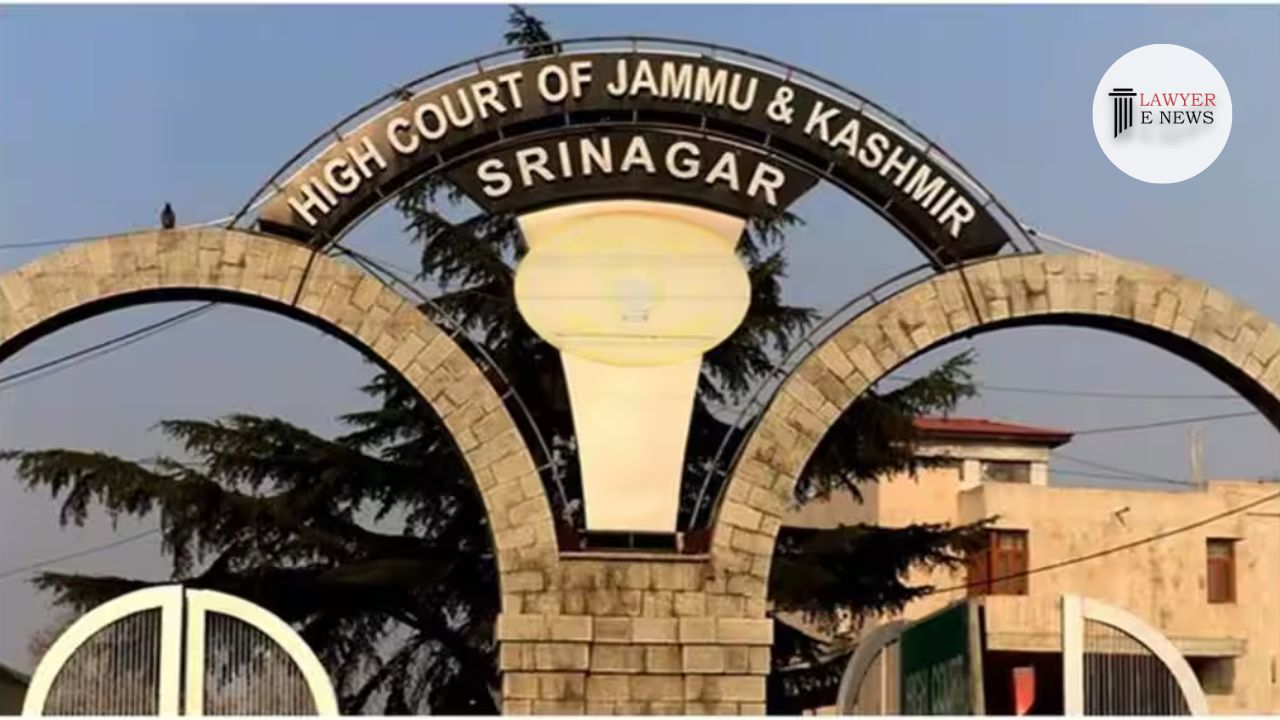-
by Admin
15 February 2026 5:35 AM



In a landmark judgment, the High Court of Jammu & Kashmir and Ladakh has quashed the dismissal of Prem Pal Singh, a constable driver in the Central Reserve Police Force (CRPF). The court found that the departmental proceedings against Singh, conducted without the mandatory sanction from the Inspector General, were unsustainable. The petitioner, previously acquitted in criminal proceedings on similar charges, will be reinstated with 50% back wages.
Facts of the Case: Prem Pal Singh, a CRPF constable driver, was dismissed from service on April 2, 2012, following allegations of misappropriating and selling fuel. Singh was acquitted by the criminal court on November 21, 2011, due to a lack of evidence. Despite his acquittal, the CRPF initiated departmental proceedings on identical charges without the required sanction from the Inspector General, leading to Singh’s dismissal.
Rule 27(2)(ccc) of CRPF Rules, 1955: The central issue was the application of Rule 27(2)(ccc) of the CRPF Rules, 1955, which mandates prior sanction from the Inspector General for departmental proceedings on similar charges post-acquittal in criminal cases. The court observed that the respondents failed to adhere to this rule, rendering the dismissal order unsustainable.
Credibility of Evidence in Departmental Proceedings: The court scrutinized the evidence presented in the departmental inquiry. Justice Sanjay Dhar noted that the Inquiry Officer’s findings were based solely on the presence of two Jerry Cans of fuel in the vehicle, driven by Singh, without any substantive evidence of misappropriation or intent to sell. “Merely because two Jerry cans of fuel were found inside the bus does not mean the petitioner indulged in sale of fuel,” the court stated.
Impact of Criminal Acquittal on Departmental Proceedings: Justice Dhar emphasized that the allegations in both the criminal and departmental proceedings were identical. The criminal court had already examined the evidence and found it insufficient to proceed against Singh. The High Court highlighted that the departmental proceedings failed to consider this critical aspect, leading to a flawed inquiry process.
The judgment drew on precedents, including Ram Lal vs. State of Rajasthan and G.M. Tank vs. State of Gujarat, to underscore that acquittal in criminal proceedings significantly impacts similar departmental inquiries. The court reiterated that the findings of a disciplinary inquiry should not contradict the conclusions of a criminal court when both proceedings are based on identical charges and evidence.
Justice Dhar remarked, “The petitioner may not have been tried by the criminal court, but he has certainly been discharged and exonerated of criminal charges so his case stands at a higher pedestal than acquittal, particularly when the petitioner has been discharged on merits and not on technicalities.”
The High Court’s judgment sets a precedent for the alignment of departmental proceedings with the outcomes of criminal cases. By reinstating Prem Pal Singh with 50% back wages, the court reinforced the necessity for procedural compliance and fair treatment in disciplinary actions. This decision is likely to influence future cases, ensuring that departmental inquiries respect the findings of criminal courts and adhere to statutory requirements.
Date of Decision: 24th May 2024
Prem Pal Singh vs. Union of India & Ors.
